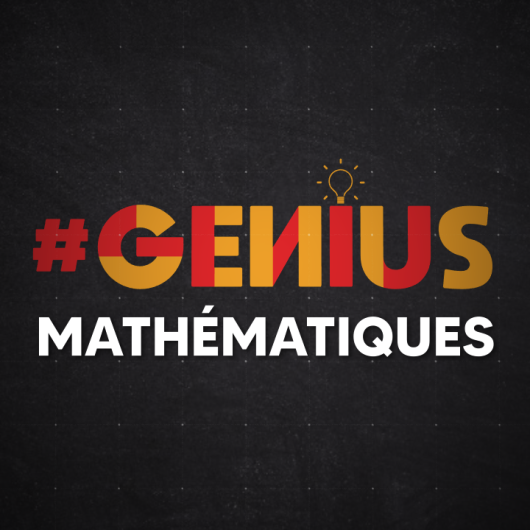- Home
- Catalog
- Online Course
- #GENIUS : PROMENADES MATHÉMATIQUES
#GENIUS : PROMENADES MATHÉMATIQUES
Start
15-Jul-21
Duration
8 hours
Rhythm
Auto-rhythmic
Prerequisites
This MOOC is mainly aimed at high school students in the 10th, 11th and 12th grades. The only prerequisites are curiosity and motivation to explore mathematics.
Discipline
General & scientific knowledge
Course language
French

PRESENTATION:
Mathematics is all around us, in everyday life.
We approached this course by highlighting all the occasions that present mathematics in everyone's daily lives:
Watching a tennis match and predicting the winner,
Studying the evolution of populations using different methods, and thus taking on the role of a demographer,
Understand an enigmatic and fascinating object: the Rubik's Cube,
Observe the world and natural phenomena through the lens of fractals,
Practicing cutting a cake into strictly equal parts.
This course has been designed by engineering school students. They are the best ones to present you these subjects, to explore them under a playful angle.
#Genius gives you access to resources beyond your academic level.
And if you're a little "off" with science, #Genius gives you the opportunity to reconcile with math, moving at your own pace.
FORMAT:
#Genius is organized into independent modules, you self-regulate your learning!
During the year 2021 after the initial publication in July, 9 additional modules will be added.
The videos will be complemented by off-platform activities, exercises, problems: get a pen and paper ready, you'll be doing math!
In some modules, you will be offered to do coding activities in Python directly on FUN-MOOC thanks to Notebook Jupyter, you will be guided step by step.
AT THE END OF THIS COURSE, YOU WILL BE ABLE TO:
Develop a mathematical mindset:
Experiment and grope in math, model, understand the importance of formalization and rigor in math, formalize an intuitive idea
Around mathematical concepts:
Discover deep mathematical theories in a playful way, discover interactions between mathematics and other sciences, become aware of the historical process that led to mathematics as we know it today
Around problems:
Analyze a problem, think about an unusual problem
Around Computers:
Use computers, understand the limits of the computer tool